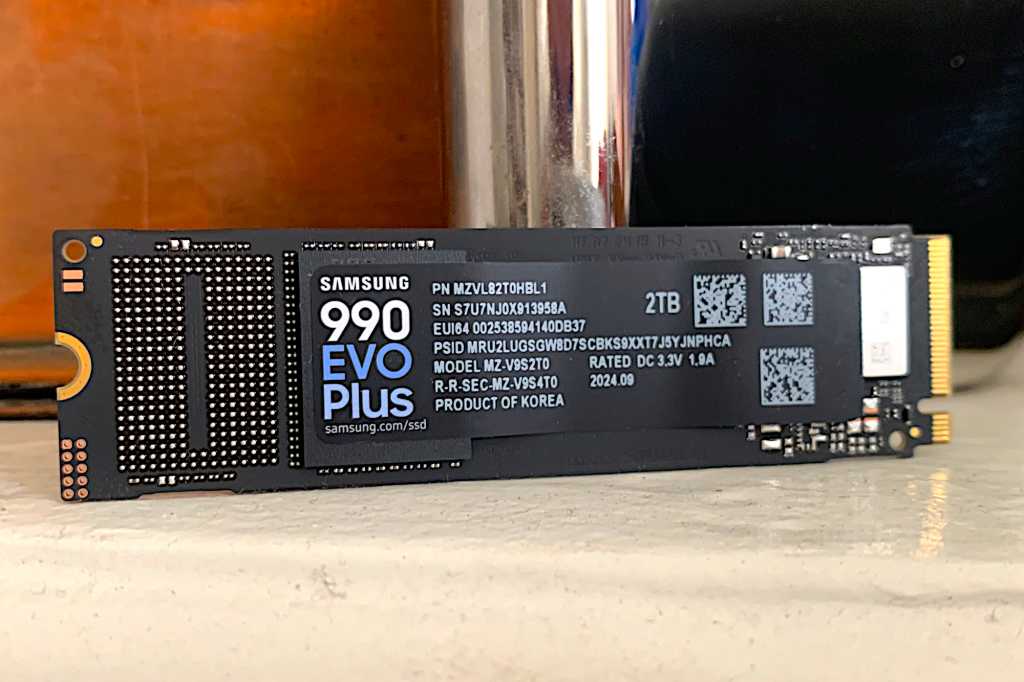Expert’s Rating
Pros
- Very good everyday performance
- Affordable for Samsung
- Five-year warranty and good TBW rating
Cons
- Slows on the 450GB write to 1.2GBps
- Pricier than some faster competition.
Our Verdict
Samsung’s 990 EVO Plus is a definite improvement over the older 990 EVO, but it’s still pricey for a host memory buffer design.
Price When Reviewed
This value will show the geolocated pricing text for product undefined
Best Pricing Today
Price When Reviewed
1TB: $110 I 2TB:$185 I 4TB: $345
Best Prices Today: Samsung 990 EVO Plus
$89.99

$109.99

$109.99
$109.99
Samsung has evolved its unique hybrid PCIe 4.0/5.0 host memory buffer (HMB) SSD with the 990 EVO Plus. It offers a solid jump in performance over the older 990 EVO in most scenarios.
What are the Samsung 990 EVO Plus’s features?
The 990 EVO Plus mimics it predecessor as a 2280 form factor (22mm wide, 80mm long) NVMe 2.01 SSD utilizing stacked, 133-layer TLC NAND and an in-house Samsung controller.
Both the 990 EVO and EVO Plus can function as a four-lane (x4) PCIe 4.0, or a two-lane (x2) PCIe 5.0 M.2 SSD, providing the same theoretical bandwidth. With the right BIOS, they can save a couple of precious PCIe 5.0 lanes. Props for the duality — just don’t expect full four-lane PCIe 5.0 performance.
A host memory buffer (HMB) is utilized for primary caching so there’s no DRAM on-board the SSD. That’s not a cap on sequential performance at all — recent HMB designs have proven equal or better than DRAM-enabled PCIe 4.0 SSDs in that regard. Where the breed suffers slightly is in random performance.
How much is the Samsung 990 EVO Plus?
The 990 EVO Plus is available in a $345 4TB version, a $185 2TB version (which I tested), and a $110 1TB version. That’s not bad for a company with Samsung’s juice, but it is considerably above the going rate for HMB drives in those capacities.
They are, however, warrantied for five years with the standard (for TLC NAND) 600TBW (terabytes that my be written) per one terabyte of capacity rating.
With the right BIOS, the Samsung 990 EVO Plus can save you a couple of precious PCIe 5.0 lanes — just don’t expect full four-lane PCIe 5.0 performance.
How fast is the Samsung 990 EVO Plus?
The EVO Plus was fantastic in CrystalDiskMark 8’s sequential tests, easily outpacing the competition. There’s a lot of competition in the HMB space, but we chose to include the older 990 EVO, as well as the top-rated Kingston NV3 and WD Blue SN5000 in the charts.
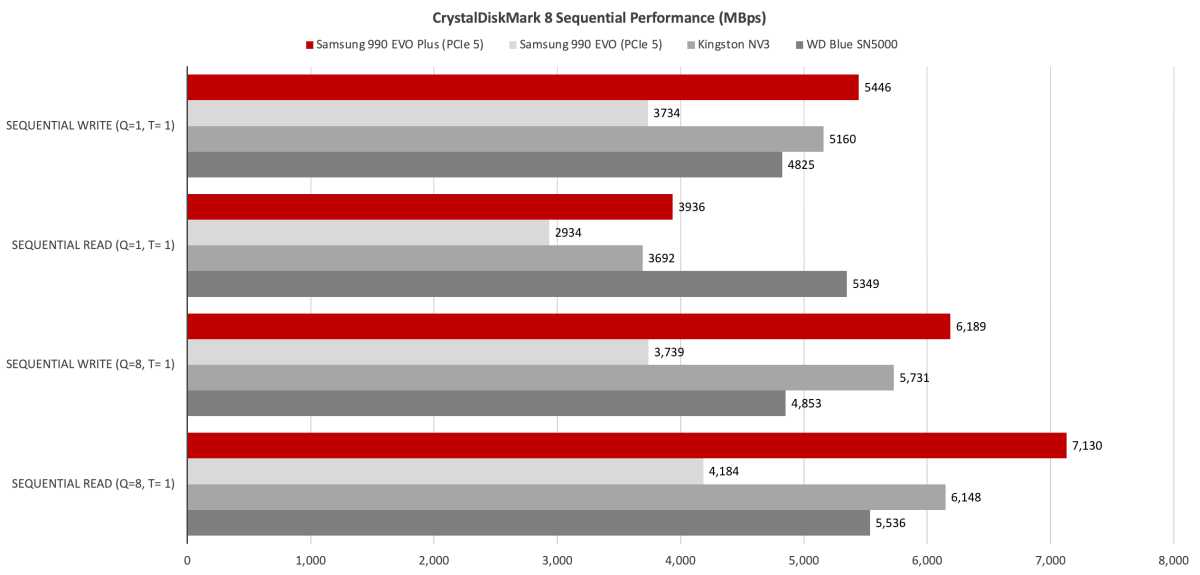
The 990 EVO Plus was marginally faster than the older 990 EVO in CrystalDiskMark 8’s 4K tests, but lost ground to the competition.
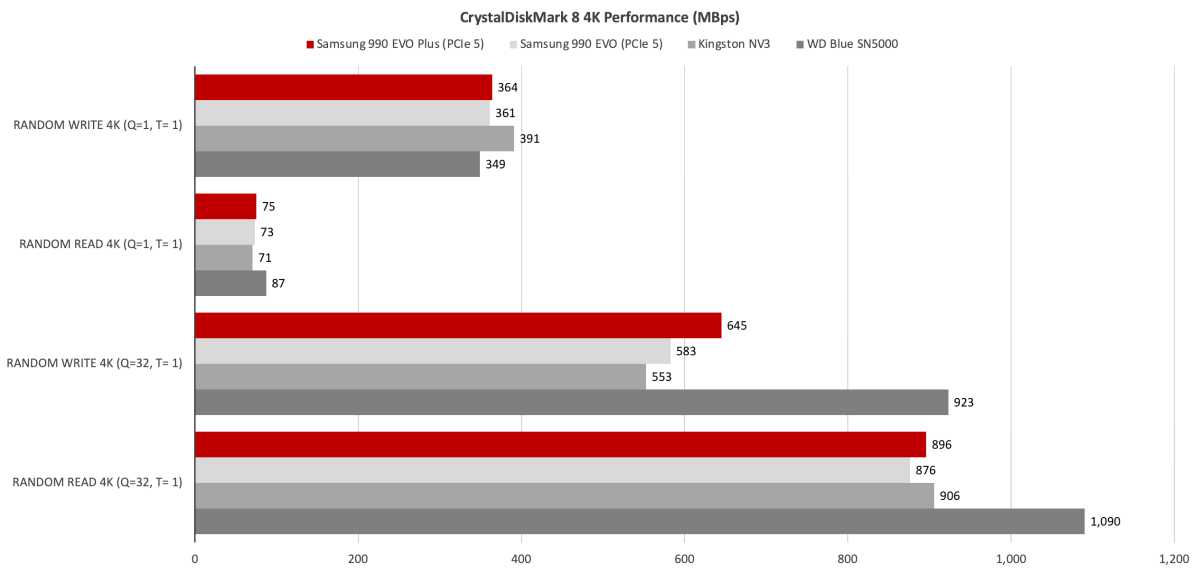
Sorry to say, but the 990 EVO Plus was slightly slower than the older 990 EVO at our 48GB transfers, with most of the deficit accruing in the 48GB folder write.
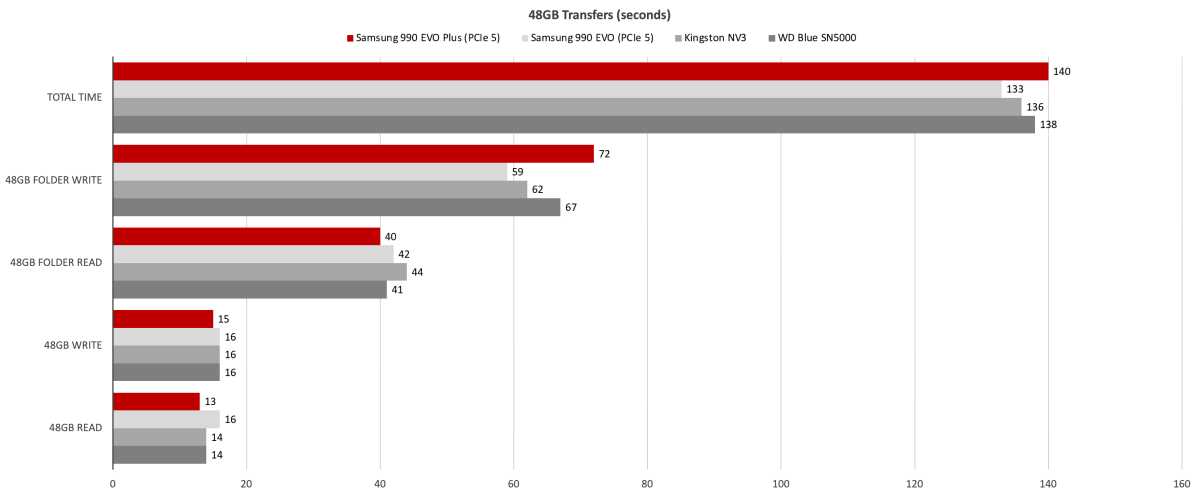
The 990 EVO Plus was considerably faster overall at the 450GB write than the plain 990 EVO. That said, it still slowed at around the 220MB point in our 450GB transfer.
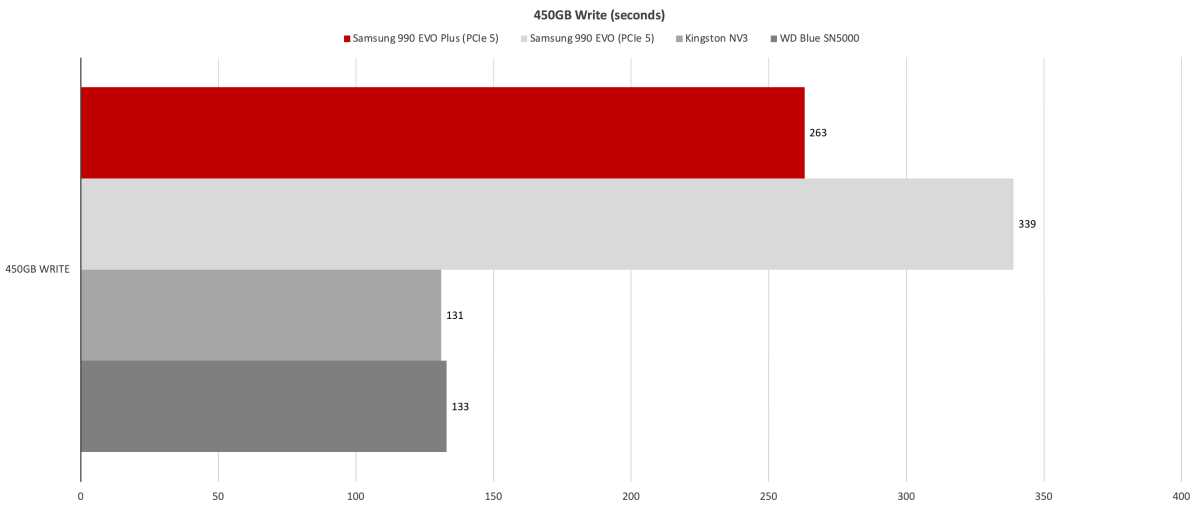
The good news is that it only slowed to 1.25GBps.
The good news is that the 990 EVO Plus slowed only to 1.2GBps (shown below), which is still a fairly brisk pace and indicative of high-quality, late-model NAND.
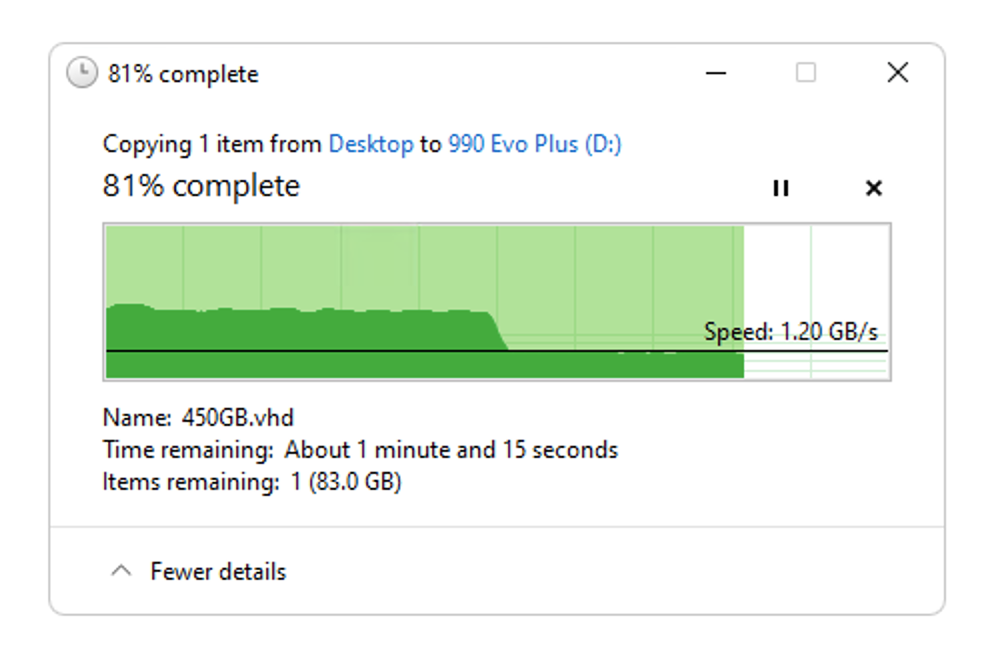
Should you buy the Samsung 990 EVO Plus?
Given a choice between the 990 EVO and 990 EVO Plus, absolutely go for the Plus. There’s also a certain cachet to the Samsung brand. But shop carefully. The 990 EVO Plus may drop in price, but currently you can get faster for less, and only take a slight performance hit for a whole lot less.
How we test
IDG’s storage tests currently utilize Windows 11 (22H2) 64-bit running on an X790 (PCIe 5.0) motherboard/i5-12400 CPU combo with two Kingston Fury 32GB DDR5 modules (64GB of memory total). Intel integrated graphics are used. The 48GB transfer tests utilize an ImDisk RAM disk taking up 58GB of the 64GB total memory. The 450GB file is transferred from a Samsung 990 Pro 2TB, which also contains the operating system.
Each test is performed on a newly formatted and TRIM’d drive so the results are optimal. Note that as any drive fills up, performance will decrease due to less NAND for secondary caching, and other factors.
The performance numbers shown apply only to the drive we were shipped as well as the capacity tested. SSD performance can vary by capacity due to more or fewer chips to read/write across and the amount of NAND available for secondary caching (writing TLC/QLC as SLC). Vendors also occasionally swap components. If you ever notice a large discrepancy between the performance you experience and that which we report (systems being roughly equal), by all means—let us know.

